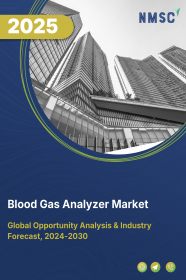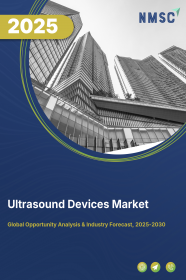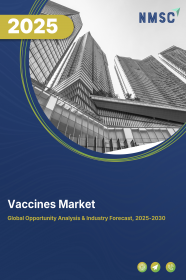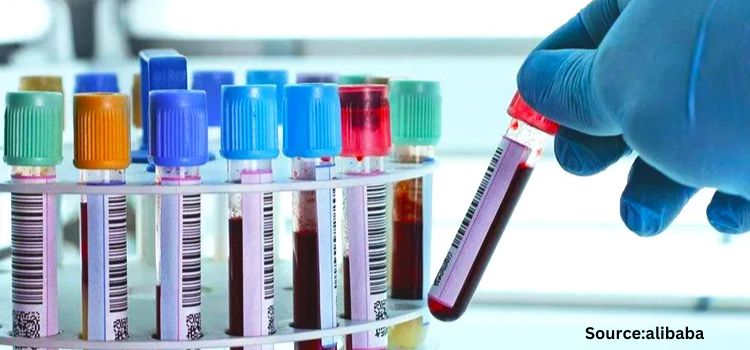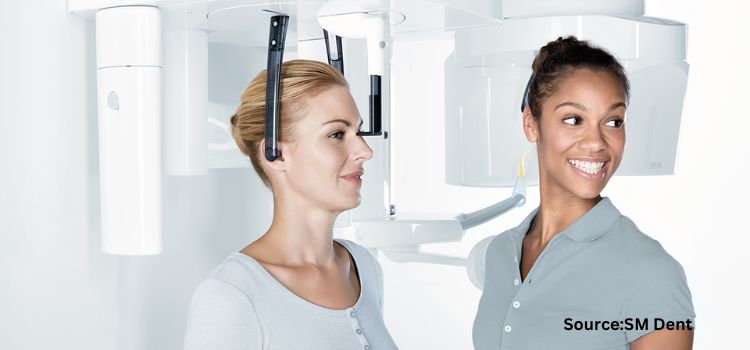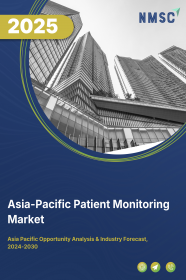
Asia-Pacific Patient Monitoring Market by Product (Cardiac Monitoring Devices, Blood Glucose Monitoring Systems, Hemodynamic/Pressure Monitoring Devices, Multi-parameter Monitoring Devices, Respiratory Monitoring Devices, Temperature Monitoring Devices, Fetal & Neonatal Monitoring Devices, Neuromonitoring Devices, Weight Monitoring Devices, and Other Devices), by Type (Conventional and Wireless), and Others- Opportunity Analysis and Industry Forecast, 2024–2030
Industry: Healthcare | Publish Date: 14-Feb-2025 | No of Pages: 188 | No. of Tables: 135 | No. of Figures: 100 | Format: PDF | Report Code : HC1096
Market Definition
Asia-Pacific Patient Monitoring Market size was valued at USD 9.94 billion in 2023, and is predicted to reach USD 17.34 billion by 2030, with a CAGR of 7.9% from 2024 to 2030. Patient monitoring is a vital component of contemporary healthcare, encompassing the ongoing or intermittent observation of a patient's essential signs, physiological parameters, and general health condition throughout their medical treatment. This procedure utilizes a variety of medical devices and technologies to gather, record, and analyze data such as blood pressure, heart rate, oxygen saturation, respiratory rate, temperature, and other vital signs.
The patient monitoring market refers to the healthcare industry segment dedicated to creating, manufacturing, and distributing equipment and systems for consistently or periodically monitoring and recording a patient's essential signs and health parameters. It plays a critical role in a wide range of healthcare settings, from hospitals and intensive care units to outpatient clinics and home healthcare. This ensures that patients receive the appropriate level of care tailored to their individual medical needs.
Rising Aging Population Creates Demand for Patient Monitoring Systems
The Asia-Pacific region is undergoing a significant demographic shift marked by a notable increase in its elderly population. This demographic trend brings with it a higher prevalence of chronic health conditions commonly associated with aging, such as diabetes, cardiovascular problems, and respiratory disorders. With the aging population facing complex health challenges, the demand for continuous and proactive monitoring has surged. Patient monitoring systems, adept at tracking vital signs and providing early detection of health issues, have become pivotal in addressing the healthcare needs of the elderly. This demographic factor serves as a primary driver for the growth of the patient monitoring market in the Asia-Pacific region.
Government Initiatives Drives the Growth of Patient Monitoring Industry
Government initiatives in the Asia-Pacific region are pivotal drivers for the growth of the patient monitoring market. Recognizing the significance of a robust healthcare system, governments allocate funds to enhance healthcare infrastructure, including hospitals and clinics, facilitating the integration of advanced technologies including patient monitoring systems. Initiatives often encourage the adoption of modern healthcare technologies through incentives and favorable regulatory environments, fostering collaboration between the public and private sectors.
These efforts aim to improve accessibility to healthcare services, especially in underserved areas, through the deployment of mobile health units and telehealth services. Clear regulatory frameworks and public health campaigns further support the safe and effective use of patient monitoring technologies, educating the public about the benefits of regular health monitoring.
Connectivity Issues in Patient Monitoring Devices Restrain the Market Growth
One of the significant restraining factors in the patient monitoring market in Asia-Pacific is the connectivity issues which pose a risk to real-time data transmission and communication between devices, impacting the timeliness and accuracy of patient information. Addressing these challenges is crucial for unlocking the full potential of patient monitoring technologies and ensuring their widespread adoption in the healthcare sector.
Advent of AI and Machine Learning in Patient Monitoring Systems Create Growth Opportunities
Artificial Intelligence (AI) and Machine Learning (ML) are transforming the landscape of patient monitoring by enabling advanced analysis of extensive datasets. In this context, AI algorithms leverage historical patient data to identify subtle patterns and anomalies in vital signs and medical history. This capability allows for early detection of potential health issues before symptoms manifest, facilitating timely interventions.
Moreover, the integration of AI and ML supports the concept of personalized medicine, tailoring treatment plans based on individual patient characteristics and responses. These technologies contribute to risk stratification, helping healthcare providers prioritize interventions for patients at higher risk of developing specific medical conditions or complications.
Japan Holds the Dominant Market Share in Asia-Pacific Patient Monitoring Market
Japan is experiencing a significant increase in the prevalence of chronic diseases, such as cardiovascular disorders, diabetes, and respiratory diseases. Chronic conditions often require continuous monitoring to manage and control symptoms effectively. Patient monitoring devices, ranging from wearable sensors to sophisticated diagnostic equipment, play a pivotal role in the ongoing assessment of patients with these health issues.
Technological advancements constitute a significant driving force in the Patient Monitoring Market in Japan. This involves the integration of modern technologies, such as wireless and wearable devices, which enable continuous and non-intrusive monitoring of vital signs. The application of data analytics and artificial intelligence enhances the processing of vast datasets, allowing for accurate predictions and early detection of health abnormalities.
India to Witness Substantial Growth in the Asia-Pacific Market
Government initiatives in India are pivotal drivers of the growth in the Patient Monitoring Market. The Indian government has committed substantial investments to upgrade healthcare infrastructure, establishing new medical facilities, and procuring advanced medical equipment, including patient monitoring systems. Initiatives such as the National Health Mission (NHM) and Ayushman Bharat aim to improve healthcare accessibility and delivery, with a focus on incorporating digital health solutions.
Increasing healthcare awareness in India is a pivotal driver for the Patient Monitoring Market. As awareness among healthcare professionals and the public expands, there is a heightened understanding of the crucial role continuous health monitoring plays in early disease detection and management. This shift towards proactive healthcare is driving demand for patient monitoring systems, with healthcare providers actively educating patients on the benefits of real-time data collection and analysis for improved health outcomes.
Competitive Landscape
Various market players operating in the Asia-Pacific patient monitoring market include Medtronic Plc, Koninklijke Philips N.V., GE Healthcare, Siemens Healthineers, Nihon Kohden Corporation, Abbott Laboratories, Masimo Corporation, Hill-Rom Holdings, Inc., Biotronik SE & Co. KG, Honeywell International, Inc., and others.
Asia-Pacific Patient Monitoring Key Market Segments
By Product
-
Cardiac Monitoring Devices
-
Mobile Cardiac Telemetry Monitors
-
Electrocardiogram (ECG) Devices
-
Implantable Loop Recorders
-
Event Monitors
-
Smart/Wearable ECG Monitors
-
-
Blood Glucose Monitoring Systems
-
Self-Monitoring Blood Glucose Systems
-
Continuous Glucose Monitoring Systems
-
-
Hemodynamic/Pressure Monitoring Devices
-
Hemodynamic Monitors
-
Blood Pressure Monitors
-
Disposables
-
-
Multi-Parameter Monitoring Devices
-
Low-Acuity Monitoring Device
-
Mid-Acuity Monitoring Devices
-
High-Acuity Monitoring Devices
-
-
Respiratory Monitoring Devices
-
Pulse Oximeters
-
Spirometers
-
Capnographs
-
Peak Flow Meters
-
-
Temperature Monitoring Device
-
Handheld Temperature Monitoring Devices
-
Table-Top Temperature Monitoring Devices
-
Wearable Continuous Monitoring Devices
-
Invasive Temperature Monitoring Devices
-
Smart Temperature Monitoring Devices
-
-
Fetal & Neonatal Monitoring Devices
-
Neonatal Monitoring Devices
-
Fetal Monitoring Devices
-
-
Neuromonitoring Devices
-
Electroencephalograph (EEG) Machines
-
Electromyography Machines
-
Cerebral Oximeter
-
Intracranial Pressure (ICP) Monitors
-
Magnetoencephalography (MEG) Machines
-
Transcranial Doppler (TCD) Machines
-
-
Weight Monitoring Devices
-
Digital
-
Analog
-
-
Others Devices
By Type
-
Conventional
-
Wireless
By End User
-
Home Healthcare
-
Hospitals & Clinics
-
Others
By Region
-
Asia-Pacific
-
China
-
Japan
-
India
-
South Korea
-
Australia
-
Indonesia
-
Singapore
-
Rest of Asia-Pacific
-
REPORT SCOPE AND SEGMENTATION:
|
Parameters |
Details |
|
Market Size in 2023 |
USD 9.94 Billion |
|
Revenue Forecast in 2030 |
USD 17.34 Billion |
|
Revenue Growth Rate |
CAGR of 7.9% from 2024 to 2030 |
|
Analysis Period |
2023–2030 |
|
Base Year Considered |
2023 |
|
Forecast Period |
2024–2030 |
|
Market Size Estimation |
Billion (USD) |
|
Growth Factors |
Increasing Aging Population creates Demand for Patient Monitoring Industry in Asia-Pacific Government Initiatives Drives the Growth of Patient Monitoring in Asia-Pacific |
|
Countries Covered |
7 |
|
Companies Profiled |
10 |
|
Market Share |
Available for 10 companies |
|
Customization Scope |
Free customization (equivalent up to 80 working hours of analysts) after purchase. Addition or alteration to country, regional, and segment scope. |
|
Pricing and Purchase Options |
Avail customized purchase options to meet your exact research needs. |
KEY PLAYERS
-
Medtronic Plc
-
Koninklijke Philips N.V.
-
GE Healthcare
-
Siemens Healthineers
-
Nihon Kohden Corporation
-
Abbott Laboratories
-
Masimo Corporation
-
Hill-Rom Holdings, Inc.
-
Biotronik SE & Co. KG
-
Honeywell International, Inc.

















 Speak to Our Analyst
Speak to Our Analyst



